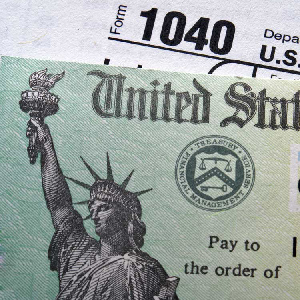Investing Under The Current U.S. Economy; More On The Panama Papers; and the IRS and your Taxes On ESPN Radio – April 15, 2016 Show
/0 Comments/in Podcast/by Tax AttorneyPanama Papers massive document leak reveals list of world leaders’ hidden offshore accounts
/0 Comments/in Foreign Accounts – IRS Operations & Investigation Developments, Undisclosed Foreign Bank Accounts & Unreported Foreign Income/by Tax AttorneyThe Panama Papers, Minimum Wage Increases and Reporting Foreign Accounts To The IRS On ESPN Radio
/0 Comments/in Podcast/by Tax AttorneyReaching The Top of the Apple Tree – Is The FBI Overreaching Themselves?
/0 Comments/in Featured/by Tax AttorneyForeign Bank Account Filings Top 1 Million – What Taxpayers Need to Know About Their Filing Requirements If You Have Foreign Bank Accounts.
/0 Comments/in Featured/by Tax AttorneyCruz Tax Plans would end payroll tax and flatten tax code
/0 Comments/in Podcast/by Tax AttorneyJeffrey B. Kahn, Esq. and Gary Sussman Discusses Cruz Tax Plan; Investing Tips; Tax Tips and the IRS On ESPN Radio – March 25, 2016 Show
Topics Covered:
1. Senator Ted Cruz’s Tax Plan
2. Emotions, expectations and your money
3. Hot tax tips to save money on taxes
4. Questions from our listeners:
a. I am about to finish my residency at UCSD and my student loans payments are about to begin. I have about $150k in debt and my required monthly payment is going to be huge. Luckily I have a good job but my student loan payment is going to be higher than my rent. How am I going to keep this up?
Gary states: Good afternoon! Yes sometimes we just have to take the money and run! Welcome to Inside Advantage – Your Financial And Tax Radio Show.
This is Licensed Financial Planner, Gary Sussman, Senior Vice President Of Investments at Trilogy Financial Services.
Jeff states:
And this is Board Certified Tax Attorney, Jeffrey B. Kahn, the principal attorney of the Law Offices Of Jeffrey B. Kahn, P.C. and head of the KahnTaxLaw team.
Gary states:
You are listening to our weekly radio show where we talk everything about finances and taxes from the ESPN 1700 AM Studio in San Diego, California.
Jeff states:
When it comes to knowing tax laws and paying taxes, let’s face it — everyone in the U.S. is either in tax trouble, on their way to tax trouble, or trying to avoid tax trouble!
Gary states:
And whether you are on the rebound or flying high, we have the information you need to make sound financial decisions and map out your strategy for success.
Gary states:
Our show is broadcasted each Friday at 2:00PM Pacific Time and replays are available on demand by logging into the KahnTaxLaw website at www.kahntaxlaw.com.
Gary states:
For today’s show we have coming up:
Segment 2 material: Emotions, expectations and your money.
Jeff states:
Also coming up is:
Segment 3 material: Hot tax tips to save money on taxes.
And of course towards the end of our show, we will be answering some of your questions.
Gary starts chit chat with Jeff.
Gary states: So for today’s top story:
Senator Ted Cruz’s Tax Plan
https://www.tedcruz.org/tax_plan/
http://taxfoundation.org/article/details-and-analysis-senator-ted-cruz-s-tax-plan
Gary states: So imagine this – 4.9 million new jobs, average wages rising 12.2% over the next decade, capital investment rising 43.9%, and every income-level seeing double-digit increases in after-tax income. Imagine exports and manufacturing jobs booming and our trade deficit falling as the tax bias against American made goods is eliminated. Imagine a 10% income tax, with every American filling out his or her taxes on a postcard or iPhone app. And lastly imagine abolishing the IRS as we know it.
Gary states: Maybe this is fantasy but according to GOP Presidential candidate Ted Cruz, this is what would happen under his tax plan.
Jeff states: And just like we critiqued other candidate’s tax plans, Ted Cruz is no different so here are the key points of Cruz Tax Plan:
Gary states: For individuals – Replace Current System With A Flat Tax. Under the Simple Flat Tax, the current seven rates of personal income tax will collapse into a single low rate of 10 percent.
a. For a family of four, the first $36,000 will be tax-free (compared to $26,000.00 under current law) .
b. The Child Tax Credit will remain in place.
c. The Earned Income Tax Credit would be expanded with greater anti-fraud and pro-marriage reforms.
d. Under the plan, deductions for charitable contributions and mortgage interest payments are preserved.
e. Eliminates the Net Investment Income Tax of 3.8% and the Medicare surtax of 0.9%, which were passed as part of the Affordable Care Act.
Jeff states: For businesses, the corporate income tax will be eliminated. It will be replaced by a simple Business Flat Tax (operating as a Value Added Tax) at a single 16% rate. The current payroll tax system will be abolished, while maintaining full funding for Social Security and Medicare. Also, provides a temporary tax holiday at a 10% rate (instead of a full 35% rate) on any deferred foreign profits that are repatriated.
Gary states: Other taxes eliminated: Payroll Tax will be eliminated. The Death Tax will be eliminated. The Alternative Minimum Tax will be eliminated. The tax on profits earned abroad will be eliminated. And of course, the Obamacare taxes will be eliminated.
Jeff states: Except for the Child Care Credit and Earned Income Credit, all other tax credits are eliminated.
Jeff continues: His plan also creates a new “universal savings account” that allows up to $25,000 of tax-deductible savings.
Gary states: A simpler Tax Code: replaced with new rules of the game – so simple, in fact, that individuals and families could file their taxes on a postcard or phone app. Also gone will be the unending loopholes in the current code, the stacks of depreciation schedules for businesses, and the multi-tiered rates on income and investments. Under the Simple Flat Tax, the Internet remains free from taxes.
Jeff states: And lastly Ted Cruz is looking the end the IRS. He states it will cease to exist as we know it, there will be zero targeting of individuals based on their faith or political beliefs, and there will be no way for thousands of agents to manipulate the system.
Gary states: Cruz believes his plan for the Simple Flat Tax will ensure that low- and middle-income Americans have greater opportunities – not only through minimal taxes, but also through better, high-paying jobs that the Simple Flat Tax will generate.
Jeff states: According to the Tax Foundation’s Taxes and Growth Model, the plan would significantly reduce marginal tax rates and the cost of capital, which would lead to a 13.9% higher GDP over the long term, provided that the tax cut could be appropriately financed. The plan would also lead to a 43.9% larger capital stock, 12.2% higher wages, and 4.8 million more full-time equivalent jobs. On a static basis, the plan would cut taxes by 9.2%, on average, for all taxpayers. Accounting for economic growth, all taxpayers would see an increase in after-tax income of at least 14% at the end of the decade.
Gary states: The figures for this model sound great but beware that The Taxes and Growth Model does not take into account the fiscal or economic effects of interest on debt. It also does not require budgets to balance over the long term, nor does it account for the potential macroeconomic effects of any spending cuts that may be required to finance the plan.
Jeff asks: So we all these grand tax cuts, how does Ted Cruz expect to pay for this?
Gary states: Senator Cruz’s plan would cut taxes by $3.6 trillion over the next decade on a static basis. However, the plan would end up reducing tax revenues by $768 billion over the next decade when accounting for economic growth from increases in the supply of labor and capital and the much broader tax base due to the new value-added tax which system is similar to most developed countries.
Jeff states: Senator Cruz’s tax reform would be a significant shift from the current tax code. Under this plan, the income tax would be greatly diminished in its importance compared to current law. Instead, the U.S. federal government would raise 71% of all revenue from the new broad-based value-added tax. The tax is a broad consumption tax that would include most of U.S. GDP, including both wages and profits. Due to these changes, the taxation of investment would significantly decline, which would greatly increase incentives to save and invest.
Gary states: But going back to the Death Of The IRS – Jeff what do you have to say about that?
Jeff states: Cruz claims each year, Americans spend 6.1 billion hours on tax compliance. That’s roughly the equivalent of every American taxpayer devoting 45 hours to filing their taxes every year. Well I do know that most individuals spend nowhere near close to 45 hours to prepare and file their tax returns.
Gary states: Of the 84,000 IRS employees roughly half (48%) work on “Examinations and Collections”; roughly another quarter (23%) work on “Filing and Account Services.” Under the Simple Flat Tax, with Americans filing taxes on a postcard, Cruz claims we will need vastly fewer examiners, collectors, filers and account servicers and that will save the government money. Furthermore, Cruz claims the IRS needs to be abolished because of the institutional corruption and political self-dealing it causes to abuse taxpayers.
Jeff states: So I guess in Cruz’s view the IRS is the only government agency that is so corrupt it should be abolished. So Mr. Cruz I ask you who would then be collecting the taxes under your system? Do you have an “app” in mind for this?
Gary states: Well it’s time for a break but stay tuned because we are going to tell you Emotions, expectations and your money.
You are listening to Board Certified Tax Attorney, Jeffrey B. Kahn, and Licensed Financial Planner, Gary Sussman on Inside Advantage on ESPN.
BREAK
Gary states: Welcome back. This is Inside Advantage – Your Financial And Tax Radio Show on ESPN and you are listening to Board Certified Tax Attorney, Jeffrey B. Kahn, and Licensed Financial Planner, Gary Sussman.
And be aware of the special offer that I have for you: Gary states PLUG: Trilogy Financial Services will provide you with a retirement cash flow analysis which is a $600.00 value for free as long as you mention the Inside Advantage Radio Show when you call to make an appointment. Call my office to make an appointment to meet with me, Gary Sussman. The number to call is 949.536.2030. That is 949.536.2030. Or visit www.yourfinancialstory.com.
Emotions, expectations and your money.
http://blogs.wsj.com/moneybeat/2016/01/08/stock-market-puts-in-its-worst-opening-week-ever/
www.usatoday.com/story/money/personalfinance/2016/03/21/stock-rebound-erases-bad-start-2016-proves-point-investors/81914668/
http://www.usatoday.com/story/money/personalfinance/2016/03/21/stock-rebound-erases-bad-start-2016-proves-point-investors/81914668/
www.dalbar.com
Franklin Templeton Investments: Emotions, Expectations and Economics Seminar Presentation (#2015-730)
Rules: FIN 2210, SEC 482
Jeff states: As we approach the end of the 1st quarter, Gary thought it would be a good idea to take notice of the wild ride the stock market has been on since the turn of the year and hopefully give our listeners some perspective on how to make sense of things moving forward.
Gary states: Jeff it certainly has been an interesting start to the year. As investors got over their New Year’s hangovers the stock market did not do much to relieve their headache. The first week of trading this year was literally the worst opening week in Wall Street’s history.
Jeff states: The DOW Jones ended the first five days of trading down 6.2% to start the year. The S&P 500 did not fare much better, closing down 6% to start the year. Naturally there was panic in the air. All the pundits were opening up their history books and charts to create their own narrative of what the future may hold. For all the bears out there, this was a feeding frenzy.
Gary states: After a horrible first week things did not get much better and after the first 2 weeks of the year both the DOW and S&P were off 9 percent, and by February the S&P had lost about 18% from its high last summer. Needless to say, people were concerned, and their emotions were starting to drive their financial decision making. That almost always is a recipe for disaster.
Jeff states: I remember the headlines. Oil was in a free fall, China was collapsing and interest rates were rising. If you were looking for a reason as to why everything was going to collapse, you wouldn’t have to go too far to find it.
Gary states: Well let’s fast forward to today. What a difference a few weeks make, the stock market has rallied strongly from its lows and is now back in the black. “While stocks are admittedly still down from their summer highs after this run, investors should learn from the recent rebound and try to think longer term instead of fretting about day-to-day volatility” says Josh Brown CEO of Ritholtz Wealth Management in New York.
Jeff states: The pressures we faced to start the year have largely abated driven primarily by the rebound in oil prices. And after last week’s meeting with the Fed where they indicated rates were not going higher anytime soon, investors continued to bid stocks higher.
Gary states: With such vicious volatility that is then amplified by the internet and social media, how can people keep a level head! How can you not get caught up in the hype? How do you stop your emotions from driving your investment decisions?
Jeff states: It seems many investors struggle with removing emotion from decisions about their investments, maybe even overestimating their ability to deal with periods of market decline and volatility.
Gary states: Completely correct, people only truly understand risk when they experience loss, and tend to be influenced more by the prospect of loss than by the opportunity for gain, with fear being the greatest motivator.
Jeff states: A loss aversion study conducted by the Journal of Marketing Research found that people place about twice the value on giving up an item than on receiving the same item.
Gary states: That is why, there is such a gap between the average return for the S&P 500 and the average equity investor.
Jeff states: In a recent DALBAR study of investor behavior, for the 20 year period from December 31, 1994 to December 31, 2014 the S&P 500 grew an average of 9.9% whereas the average equity fund investor earned an average of just 5.2%.
Gary states: Jeff, DALBAR has been releasing that study forever and the numbers don’t change very much. The primary reason for this occurring is that some investors jumped in and out of the market at the wrong time for the wrong reasons thus missing out on long term opportunities, by ultimately buying high, and selling low.
Jeff states: The media seems to be playing a major role in how people feel about their money. We seem to be living in a world made up of headlines and sound bites.
Gary states: Very true and with 24/7 access to information these headlines are changing by the hour. Think about what emotions words like “slammed,” “plunge,” “tumble” and “surge” provoke. They make you feel like you should be taking some sort of action daily and the only way to make money in the market is to effectively time it as when to get in and out.
Jeff states: Market timing in turn can be risky simply because you are now trying to predict the future, which is impossible. These investors think about missing the “worst” days, but what if they land up missing the “best” days?
Gary states: Trying to accurately time the market is impossible. I always tell people that it is hard enough to time it right once let alone on a consistent basis.
Jeff states: In a study conducted by Morningstar, they looked at what would have happened if an investor tried to time the market, but missed the best, 10,20,30 or 40 trading days over a 20 year period from 1994-2014.
Gary states: If you would have stayed fully invested in the S&P 500 you would have earned an average 9.85% return, once you started to remove the best days, results were not so pretty. If you missed the 10 best days you would have earned 6.11%, if you missed the best 20, you would have earned 3.63%, the best 30 it would be 1.5% and miss the best 40 days you would have actually lost .45%.
Jeff states: So how do investors stay unemotional?
Gary states: I would start off by managing expectations. If you expect the market to be going up every day or every year, you will be sadly disappointed. When the market is doing well, investors can become “blinded” by euphoria over their investment returns and tend to expect consistent double digit returns, the problem is that our memories of bear or declining markets are simply a blur. So keep a level head, and don’t let the daily movements in the market drive your long term decision making.
Jeff states: Franklin Templeton did a study that looked at the three investor types and their expectations of the markets. They broke the three types into optimist, the skeptic and the pessimist and the missed opportunities that can result.
Gary states: Optimists tend to think the stock market continually rises, but fail to consider the many short-term fluctuations that have occurred throughout history. In turn optimists may become too heavy in stocks and overlook other asset classes like bonds and cash and thus feel too much pain when markets correct or maybe even land up making rash decisions.
Jeff States: Then we have the skeptic. Skeptics tend to assume the market will stay flat, and tend to be handcuffed by indecision. The net result is that skeptics may then miss out on the opportunity for additional growth that can come out of owning stocks and may in turn limit their upside returns.
Gary states: Lastly we have the pessimist. They tend to see the stock market as too much of a gamble, and believe CDs are the only way to go. While the pessimist may not expose themselves to any market based risk they open up the door to a potentially bigger risk, that of inflation and the decreasing value of their dollars over time and severely limiting their ability to grow their wealth and maybe even land up locking in the likelihood that they never even reach their goals.
Jeff states: Regardless of which category you fall in, it seems investor’s expectations can lead to disappointment in the performance of their investments.
Gary states: Jeff, the thing I consistently strive to do when working with clients is manage expectations to avoid any type of surprise when their long term performance does not match the often times unrealistic expectation of what their money should be doing.
Jeff states: So what should our listeners do to keep their emotions and expectations in line with each other?
Gary states: Number 1, make sure you are working with a professional. Very few people can effectively manage the cycle of emotions on their own. Number 2, review your financial plan to determine if your portfolio matches your risk tolerance and don’t adjust your risk tolerances based on the movements in the market. Number 3, understand the rationale for your investment strategy. Number 4, set realistic performance expectations and lastly, discuss how to prepare yourself financially and mentally during times of market decline.
Jeff states: Sounds like, if you can set realistic investment expectations, you may be able to more easily ride the market’s ups and downs with a greater sense of confidence.
Gary states: Exactly! Having the right asset allocation is key to ensuring the ride you are taking matches the amount of risk you are comfortable taking. If that is in place, you may feel more at ease when we go through our next market correction which is why you should remember …
Gary states PLUG: Trilogy Financial Services will provide you with a retirement cash flow analysis which is a $600.00 value for free as long as you mention the Inside Advantage Radio Show when you call to make an appointment. Call my office to make an appointment to meet with me, Gary Sussman. The number to call is 949.536.2030. That is 949.536.2030. Or visit www.yourfinancialstory.com.
Gary states: Stay tuned because after the break we are going to tell you hot tax tips to save money on taxes.
You are listening to Board Certified Tax Attorney, Jeffrey B. Kahn, and Licensed Financial Planner, Gary Sussman on Inside Advantage on ESPN.
BREAK
Gary states: Welcome back. This is Inside Advantage – Your Financial And Tax Radio Show on ESPN and you are listening to Board Certified Tax Attorney, Jeffrey B. Kahn, and Licensed Financial Planner, Gary Sussman.
Gary states: And before we start our next segment, Jeff would you please tell our listeners of your offer?
Jeff states PLUG: The Law Offices Of Jeffrey B. Kahn, P.C. will provide you with a Tax Resolution Plan which is a $500.00 value for free as long as you mention the Inside Advantage Radio Show when you call to make an appointment. Call my office to make an appointment to meet with me, Jeffrey Kahn, right here in downtown San Diego or at one of my other offices close to you. The number to call is 866.494.6829. That is 866.494.6829.
Six Facts You Should Know Before Deducting a Charitable Donation
Gary states: If you gave money or goods to a charity in 2015, you may be able to claim a deduction on your federal tax return. Here are six important facts you should know about charitable donations.
[Gary reads off the name of each fact and Jeff describes]
1. Qualified Charities. You must donate to a qualified charity. Gifts to individuals, political organizations or candidates are not deductible. An exception to this rule is contributions under the Slain Officer Family Support Act of 2015. To check the status of a charity, use the IRS Select Check tool.
2. Itemize Deductions. To deduct your contributions, you must file Form 1040 and itemize deductions. File Schedule A, Itemized Deductions, with your federal tax return.
3. Benefit in Return. If you get something in return for your donation, you may have to reduce your deduction. You can only deduct the amount of your gift that is more than the value of what you got in return. Examples of benefits include merchandise, meals, tickets to an event or other goods and services.
4. Type of Donation. If you give property instead of cash, your deduction amount is normally limited to the item’s fair market value. Fair market value is generally the price you would get if you sold the property on the open market. If you donate used clothing and household items, they generally must be in good condition, or better, to be deductible. Special rules apply to cars, boats and other types of property donations.
5. Form to File and Records to Keep. You must file Form 8283, Noncash Charitable Contributions, for all noncash gifts totaling more than $500 for the year.
6. Donations of $250 or More. If you donated cash or goods of $250 or more, you must have a written statement from the charity. It must show the amount of the donation and a description of any property given. It must also say whether you received any goods or services in exchange for the gift.
Save on Your Taxes and for Retirement with the Saver’s Credit
Gary states: If you contribute to a retirement plan, like a 401(k) or an IRA, you may be able to claim the Saver’s Credit. This credit can help you save for retirement and reduce the tax you owe. Here are some key facts that you should know about this important tax credit:
[Gary reads off the name of each fact and Jeff describes]
1. Formal Name. The formal name of the Saver’s Credit is the Retirement Savings Contribution Credit. The Saver’s Credit is in addition to other tax savings you get if you set aside money for retirement. For example, you may also be able to deduct your contributions to a traditional IRA.
2. Maximum Credit. The Saver’s Credit is worth up to $4,000 if you are married and file a joint return. The credit is worth up to $2,000 if you are single. The credit you receive is often much less than the maximum. This is partly because of the deductions and other credits you may claim.
3. Income Limits. You may be able to claim the credit depending on your filing status and the amount of your yearly income. You may be eligible for the credit on your 2015 tax return if you are:
o Married filing jointly with income up to $61,000
o Head of household with income up to $45,750
o Married filing separately or a single taxpayer with income up to $30,500
4. Other Rules. Other rules that apply to the credit include:
o You must be at least 18 years of age.
o You can’t have been a full-time student in 2015.
o No other person can claim you as a dependent on their tax return.
5. Contribution Date. You must have contributed to a 401(k) plan or similar workplace plan by the end of the year to claim this credit. However, you can contribute to an IRA by the due date of your tax return and still have it count for 2015. The due date for most people is April 18, 2016.
6. Form 8880. File Form 8880, Credit for Qualified Retirement Savings Contributions, to claim the credit.
Jeff states: You know we are always thinking of ways to save our clients’ money from taxes which we why …
PLUG: The Law Offices Of Jeffrey B. Kahn, P.C. will provide you with a Tax Resolution Plan which is a $500.00 value for free as long as you mention the Inside Advantage Radio Show when you call to make an appointment. Call my office to make an appointment to meet with me, Jeffrey Kahn, right here in downtown San Diego or at one of my other offices close to you. The number to call is 866.494.6829. That is 866.494.6829.
Gary states: Stay tuned as we will be taking some of your questions. You are listening to Board Certified Tax Attorney, Jeffrey B. Kahn, and Licensed Financial Planner, Gary Sussman on Inside Advantage on ESPN.
BREAK
Gary states: Welcome back. This is Inside Advantage – Your Financial And Tax Radio Show on ESPN and you are listening to Board Certified Tax Attorney, Jeffrey B. Kahn, and Licensed Financial Planner, Gary Sussman.
Jeff states: And Gary and I always pleased to make our offers to our listeners where… PLUG: The Law Offices Of Jeffrey B. Kahn, P.C. will provide you with a Tax Resolution Plan which is a $500.00 value for free as long as you mention the Inside Advantage Radio Show when you call to make an appointment. Call my office to make an appointment to meet with me, Jeffrey Kahn, right here in downtown San Diego or at one of my other offices close to you. The number to call is 866.494.6829. That is 866.494.6829.
Gary states PLUG: Trilogy Financial Services will provide you with a retirement cash flow analysis which is a $600.00 value for free as long as you mention the Inside Advantage Radio Show when you call to make an appointment. Call my office to make an appointment to meet with me, Gary Sussman. The number to call is 949.536.2030. That is 949.536.2030. Or visit www.yourfinancialstory.com.
You should also know that the securities and advisory services are offered through National Planning Corporation (NPC) Member FINRA, SIPC, and a Registered Investment Advisor. Trilogy Financial Services and NPC are separate and unrelated Entities.
Jeff states: If you would like to post a question for us to answer, you can go to my website at www.kahntaxlaw.com and click on “Radio Show”. You can then enter your question and maybe it will be selected for our show.
OK Gary, what questions have you pulled for us to answer?
Question from Sandra of San Diego: I am about to finish my residency at UCSD and my student loans payments are about to begin. I have about $150k in debt and my required monthly payment is going to be huge. Luckily I have a good job but my student loan payment is going to be higher than my rent. How am I going to keep this up?
Answer by Gary: Student debt is a serious problem for recent graduates. With the cost of college the average student is graduating with 30k in debt. Having a budget is essential no matter what and considering the amount of your payment you should look to see where else you can make cuts in your spending. Another alternative is to explore Income Driven Repayment plans. These programs exist for the majority of federal loans. They will base your payment on a percentage of your income rather than on the balance of the loan. These programs may allow you to significantly reduce your monthly payment and eventually have that debt forgiven. The benefit is that you may actually be able to afford to live. The caveat is that because this will become forgiven debt at some point in the future, it will be taxable. These programs are not right for everyone and I would definitely investigate this topic further with the guidance of a financial adviser and tax professional.
Gary states: Well we are reaching the end of our show.
Remember you can send us your questions by visiting the kahntaxlaw website at www.kahntaxlaw.com.
Jeff states: Have a great day everyone!
Keep In Touch
MEET US IN PERSON
Services
- Abatement of Tax Penalties
- Audits And Tax Court
- Business Transactions
- Cannabis / Marijuana Tax Services
- Criminal Tax Investigations
- Crypto-currency / Bitcoin – Tax Representation Services
- Currently Not Collectible
- Delinquent Tax Returns
- Employment And Payroll Taxes
- Entity Formations
- Estate Planning
- Estate Planning For Non US Citizens
- Estate Tax Planning
- FATCA | Foreign Account Reporting Compliance
- FBAR | Foreign Bank Account Reporting
- Full Pay Service
- Income Tax Planning
- Innocent Spouse Claims
- IRS & State Tax Controversies
- IRS Offshore Tax Investigations
- IRS Offshore Tax Investigations
- IRS State Tax Controversies
- Offers In Compromise
- Payment Agreements
- Representation Of Tax Preparers And Other Tax Professionals
- Revenue Officer Assistance
- Tax & Estate Plannng
- Tax Liens And Levies
- Wage Garnishment










 Follow
Follow Follow
Follow